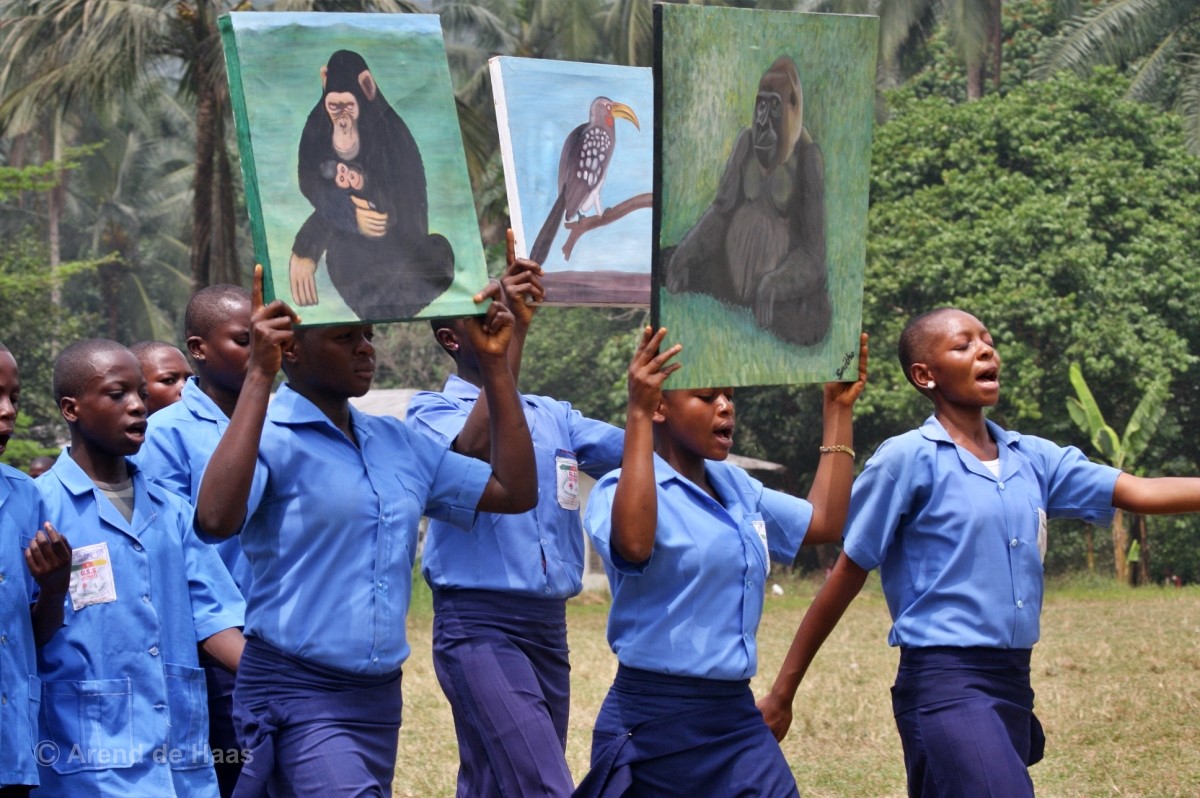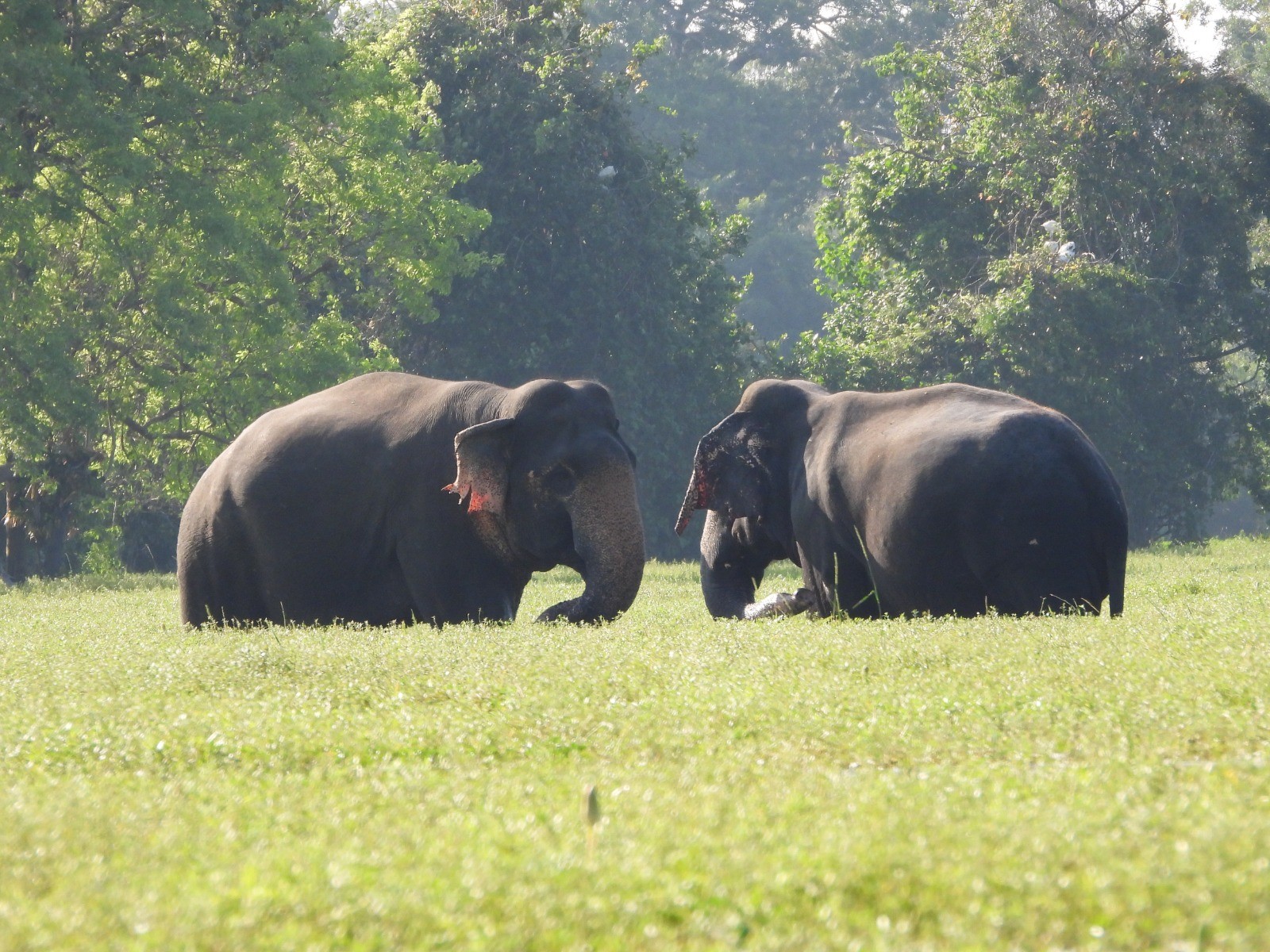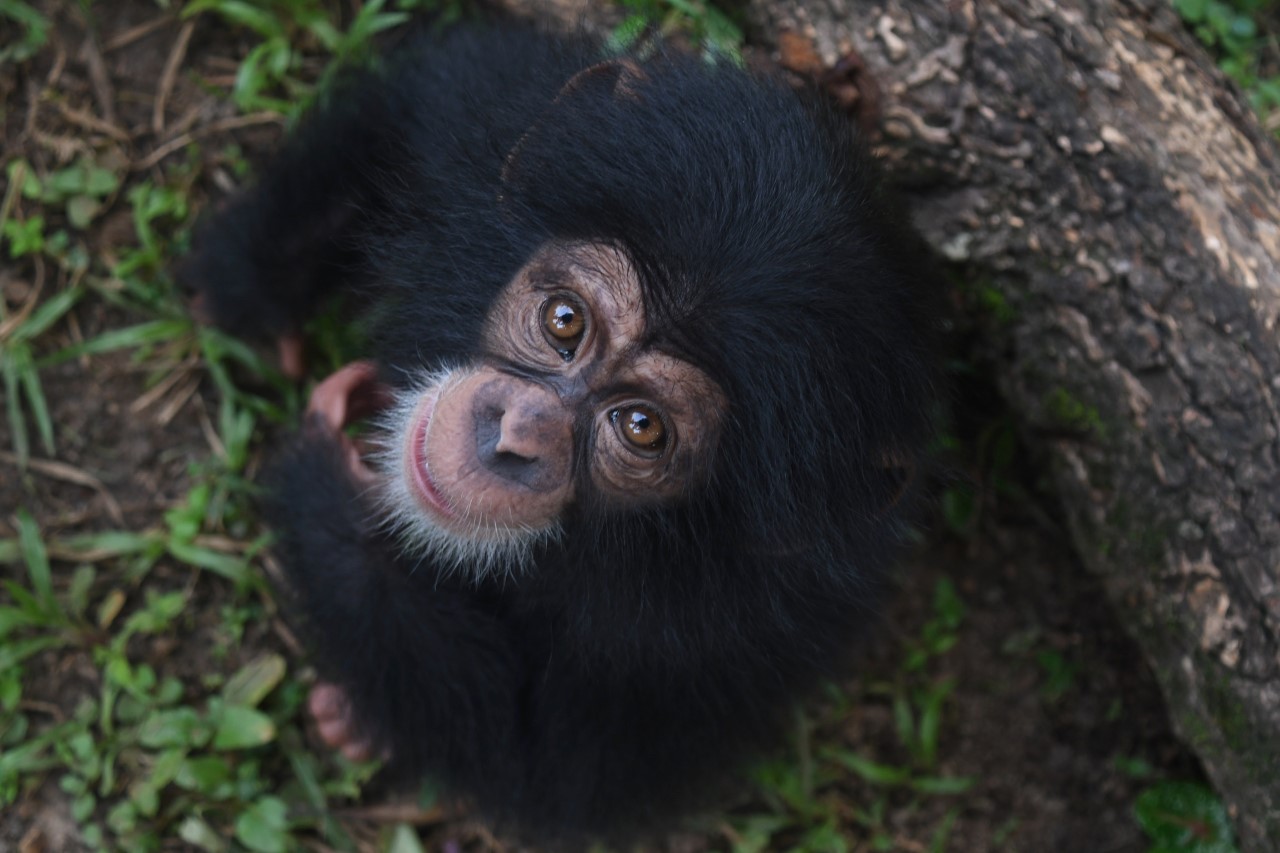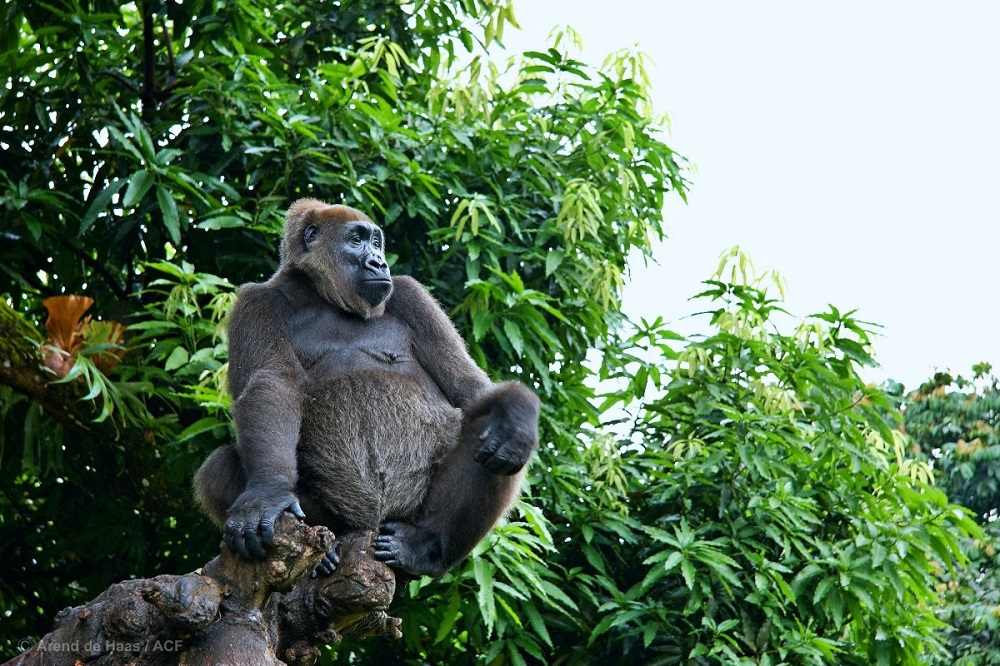Dja Biosphere Reserve is a World Heritage Site considered as one of IUCN’s fifteen critical zones for the conservation of central African biodiversity. This corridor links a significant population of critically endangered western lowland gorillas and other globally threatened large mammals such as Central chimpanzees, African Forest elephants, drills, mandrills and White collared mangabey, found in the Deng Deng National Park to those in the DBR. The corridor is estimated to be 620,000 ha. Currently, 80 percent of the corridor has received some sort of protection (community forest, council forest, and forestry concessions).
However, this leaves 52,000 ha of the proposed Deng Deng-Dja Corridor still unprotected. All of these threatened species are experiencing increasing threats from bushmeat poaching and the illegal wildlife trade. The population of western lowland gorilla is known to have decreased significantly in recent decades. Isolation will increase occurrences of inbreeding, leading to weak genes and extinction in the long-term. Fragmented habitat means that populations of many species cannot increase due to limited space and resources.
Working with our on-the-ground partners, this project aims to support the protection of the remaining unprotected section (52,000 ha) of the Deng Deng-Dja Corridor, whilst also supporting the livelihoods and economic development of the local people. The community forestry approach will improve community engagement in forest management, enhance forest conservation and reduce poverty for forest dependent people.
The creation of this protected wildlife corridor will significantly benefit biodiversity, connecting isolated sub-populations of iconic endangered species including the western lowland gorilla, increasing genetic mixing and resilience, and increasing overall wildlife populations as available habitat expands.
Improved forest management across the 8 new community forest areas will have a substantial impact on the local economy and livelihoods, diversifying the economy and providing employment opportunities in agroforestry, regenerative agriculture and the production of high value forest products such as honey and soaps. Community rangers will be at the heart of the project, working to patrol existing habitat and monitor wildlife, as well as undertaking habitat restoration where necessary.



